Perspectives
7wireVentures Presents: Top of the Ladder Featuring Livongo CEO, Zane Burke
Recently, 7wireVentures had the pleasure of sitting down with Zane Burke, CEO of Livongo, where we learned about his morning routine, his career transition from CEO of Cerner to leading a high-growth startup, and his perspective on the future of applied health signals.
What were your most memorable experiences growing up?
Time with my parents. Both of my parents were very hard-working Midwesterners. I grew up in Hutchinson, Kansas. My dad was a propane retailer – he owned about 20 propane retailers, so he was Hank Hill before there was a Hank Hill, if you know the cartoon. My mom was an NYU business grad, incredibly smart, and ended up in Hutchinson, Kansas. I just remember they were always there for me and they were always, always working hard. That was something that they instilled from the get-go. It’s a family value.
When you were a child, what did you want to be when you grew up?
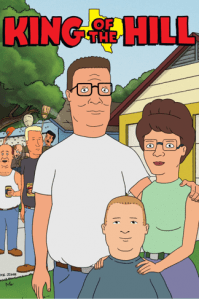
It wasn’t so much an idea of exactly what I was going to be, but I just knew I was going to be in business. My dad was a serial entrepreneur, always starting new things. And I thought that would be my path as well. His advice to me was always: it’s not what you know that hurts you in business, it’s what you don’t know. He’d say if he could go back, he would have pursued an accounting degree and a law degree because those were always the stumbling blocks, the areas where he learned the lessons the hard way. So, that’s why I was an accounting major and did my masters. I had planned on going back to law school, I just never did.
What was your first job?
When I was 14 years old, my dad made me collect delinquent accounts. I would literally go out to the most delinquent, most past due accounts out there, out in these little places in Nebraska and Kansas. I think it was to show me the value of a dollar. And part of the purpose was to make his retail managers go out. Since they had the boss’s kid with them, they had to go out and ask for the money. So, it was two-fold, he was forcing his management team to go out, but he did it under the auspice of training his son the value of a dollar. We both had accountability and it was always a learning exercise. I used to say the more delinquent the person, the bigger the dog we’d run into. So that was my first job during the summers. I would do anything around my dad’s propane business – collecting delinquent accounts, painting propane tanks – the very exciting, glamorous things.
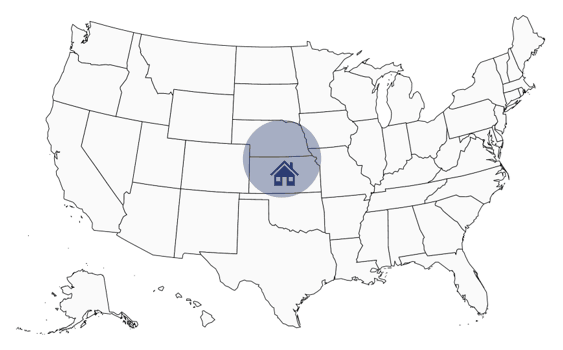
What does your morning routine look like?
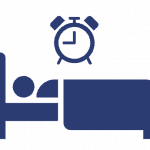 On my best days, it starts with working out with my trainer. I’m usually up early – by 5am. I’m not quite as good when I’m on the road. It does help to have my trainer because it creates a separate level of accountability. The point though is to get up and get started with something you do for yourself. I know the rest of the day is going to be about work and what we’re doing at Livongo, which is a lot of fun, but I always try to do something for myself first. Then, it’s time to get to work and the very next thing is reviewing whether anything dramatically changed since I closed my eyes.
On my best days, it starts with working out with my trainer. I’m usually up early – by 5am. I’m not quite as good when I’m on the road. It does help to have my trainer because it creates a separate level of accountability. The point though is to get up and get started with something you do for yourself. I know the rest of the day is going to be about work and what we’re doing at Livongo, which is a lot of fun, but I always try to do something for myself first. Then, it’s time to get to work and the very next thing is reviewing whether anything dramatically changed since I closed my eyes.
What motivates you about working in healthcare?
Healthcare is ultimately always personal. Whether it’s about yourself or somebody you love, it always becomes personal. It’s really important to remember with everything we do in the business of healthcare that there’s a person on the other side of the table, a person that is loved by others the same way we love the people in our lives. What we do means something to people and to the people that they love. It’s uniquely personalized. I’ve had a longstanding mission, a personal mission, which follows a simple ethos: none of us actually want to be using the healthcare system. We all want to be as healthy as possible, as close to home as possible, and in the best health status possible. So, I’ve always thought that healthcare IT, the technology and the data and services, should help enable that. How do you live the best life you can live and have healthcare support you in living that life? Versus, healthcare driving what your life looks like. It’s a very simple mission statement for me and it’s been that way for a long time. For me, that was one of the big attractions of Livongo.
“None of us actually want to be using the healthcare system. We all want to be as healthy as possible, as close to home as possible, and in the best health status possible.”
You spent 22 years in various roles at Cerner, beginning as a VP of Finance. What was the biggest change for you in your transition into senior management?
I think the first one was moving from a finance background to more of a market and client-facing role. I used to describe my work like this: I had a day job, which was being the VP of Finance, and I had a night job that was more interesting, which was that I took an interest in the healthcare marketplace. What was going on for companies across the industry? When I was at Cerner, I saw a need for somebody that had a broader view of where there’s M&A activity and a kind of awareness of other people in the ecosystem. There was nobody else doing that. I’ve always sort of created my next job opportunity before I had it. In every case at Cerner, I started working on my next job before either the job existed at all or I was physically in that role.
What are the biggest differences you’ve seen between leading a large, public organization versus a high-growth start-up like Livongo?
We don’t have all the processes figured out like you do in a more mature organization. But I’ve been a part of running a very high growth organization before. When I came to Cerner, it was a $150-million company and, when I left, it was a $5.5-billion company. We doubled something like every three years. But here, we’re doubling every year. Every three years is hard enough. Every year is another beast. It’s hard for people to get comfortable with being uncomfortable, because it’ll never feel comfortable. That’s not really a change from my past as much as it has just been an acceleration. We have to think of ourselves as the billion-dollar company, the million-member company, and the 2,000-employee company. That’s the framework by which we have to operate and think. The good news is that I’ve done a fair amount of that in my past life, it just hasn’t been at this kind of pace. We want to realize the full value of the opportunity at Livongo, because we have the opportunity to be the consumer healthcare interface, period. It’s really an awesome opportunity and we feel a responsibility to our members. So as a consumer of care, or health ideally, we need to succeed. That’s the kind of thing that we need to keep thinking about all the time.
“We have to think of ourselves as the billion-dollar company, the million-member company, and the 2,000-employee company. That’s the framework by which we have to operate and think.”
Then there are some elements that are just unique to Livongo. Being here with Jenny [Schneider], Lee [Shapiro], and Glen [Tullman], it’s been fun to have those three to bounce ideas off of. It’s been a fun five months thus far. It seems like it’s been longer than that. It’s a team and the four of us are speaking at least daily – sometimes all of us together, sometimes in pieces. They are all very smart, very bright. We aren’t afraid to say we don’t agree, in a very healthy way. It really helps us to make the best decisions. Each one of us is okay saying that wasn’t my idea but it is a better idea. That’s been fantastic and I’m convinced it’ll make us better and better. It’s hard to keep that kind of culture. It’s easy among the four of us, but we also want to keep it throughout the company.
Livongo has been deemed a pioneer in the growing field of Applied Health Signals. Where do you see this sector in 10 years and how do you view new entrants?
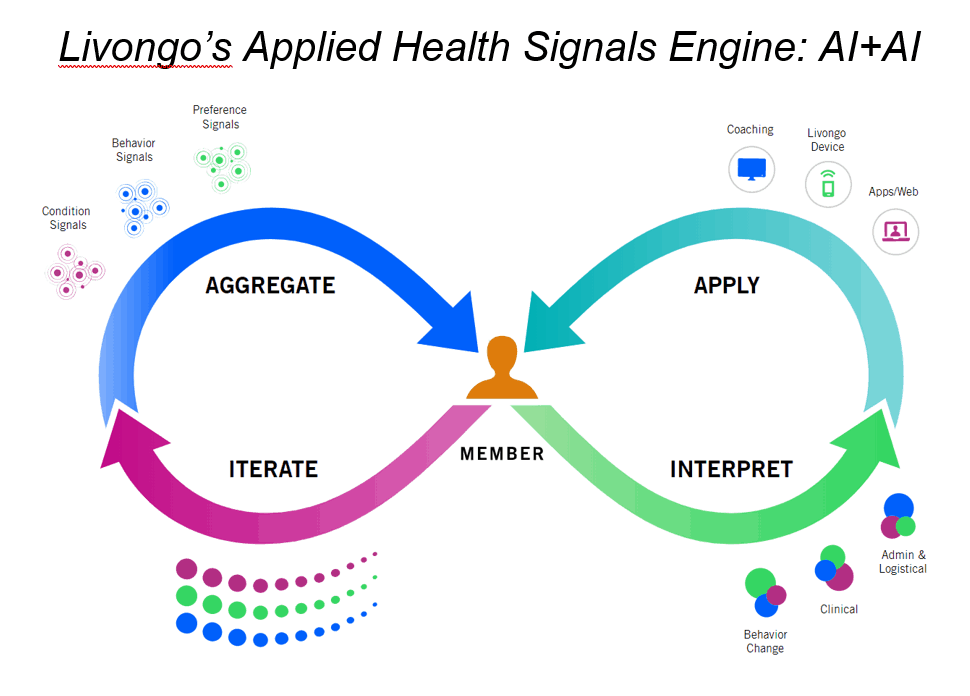
I’ll start with the second part. New entrants are inevitable. And new entrants are going to raise the tide for all of us. There’s clearly a market for Applied Health Signals. It is the future. I think we’re proving that, and that there actually can be a consumer healthcare business. Nobody has succeeded in that space thus far, but I think it is something we will see more of. But healthcare is hard because you must understand the byzantine nature of how healthcare financial systems work in addition to understanding the IT piece. That’s why people haven’t succeeded before because you have to do both. You have a mismatch of who has the financial risk and who captures the health benefits of the solutions. Then, today, the system is designed around the physician and the hospital. You have to understand all the constituents. I think Livongo is proving that the virtuous business model and the promise of what healthcare IT was supposed to be can work. We can take existing spend out of the system, reallocate that spend to get a hard financial ROI, and drive significant clinical outcomes – all while delivering a great experience. It’s a virtuous business model. And I think those organizations that can create a virtuous business model where all the constituents win are those that will find success.
Looking out 10 years, to answer the first part of your question, I don’t think we’re going to see an avalanche. I think a lot of people will try to emulate what we have done and will do. We’ll end up with some real competitors, there’s no doubt we will. But if you don’t understand that it’s the member first, the experience first, you will fail. If you don’t understand the flow of funds, you will fail. And if you don’t understand who all the blockers are in healthcare, how powerful they are, and that they’re going to protect their spot in life, you will fail. I think there will be a number of consumer healthcare companies, but I don’t think it will be a vast success. Because to unwind healthcare is just a massive, massive and long-term process. And this business is won or lost in the nuance. There’s a reason why these really hard and complex problems haven’t been solved yet.
So, you’ve answered this in a couple of different ways. But is there anything else that you want to add about what excites you most about the work Livongo is doing today?
I’ll just add this – the people we have are just committed to making a difference in the world. I have never seen a group of people that are so focused on the member experience. Not just in the sense of “I want this to be a good service experience”, but “I want to help you” in a non-judgmental way. The culture is just amazing here. I want to figure out ways as we grow to make sure that we keep that culture. There are three core elements that are important to us: the member experience, the clinical outcomes, and the financial ROI. Those have to really drive every decision we make.
What’s your superpower?
 If I had to describe it, I think I would call it an innate ability to understand markets. I have always been able to look at the players in a market and how they interact and make sense of the dynamics. What better industry to hone a skill like that in than healthcare? The healthcare marketplace is so fascinating and complex. Having this superpower, as you called it, and appreciating the knowledge I could build using it were a part of what drew me to what I referred to as my ‘night job’ earlier.
If I had to describe it, I think I would call it an innate ability to understand markets. I have always been able to look at the players in a market and how they interact and make sense of the dynamics. What better industry to hone a skill like that in than healthcare? The healthcare marketplace is so fascinating and complex. Having this superpower, as you called it, and appreciating the knowledge I could build using it were a part of what drew me to what I referred to as my ‘night job’ earlier.
What would you want to do if you weren’t in healthcare?
Well, if talent were no object, I would be a country singer. I’m too old and not good enough, but I’ve got the travel part down! I could handle the travel life. I love music. I love music of all kinds. You’d be shocked if you knew everything I listened to. People that are close to me know there’s always a song playing in my head. I think life goes to music, and music is a magical thing in that it connects people to different places and times. It unites experiences and creates commonalities. I just think it’s such a powerful medium. I like country in particular because it always tells a story. Plus, my voice is probably better suited for country than it is for rap.
What book are you reading right now?
I’m reading Jenny’s book [Decoding Health Signals] of course. I’m also reading a book called Happier at Work: The Power of Love to Transform the Workplace. It’s really about how do you trust and how do you provide an environment that’s about loving reinforcement. And how much more can you engage and really get from your team when you work through love versus fear? Those are the two I’m reading now.
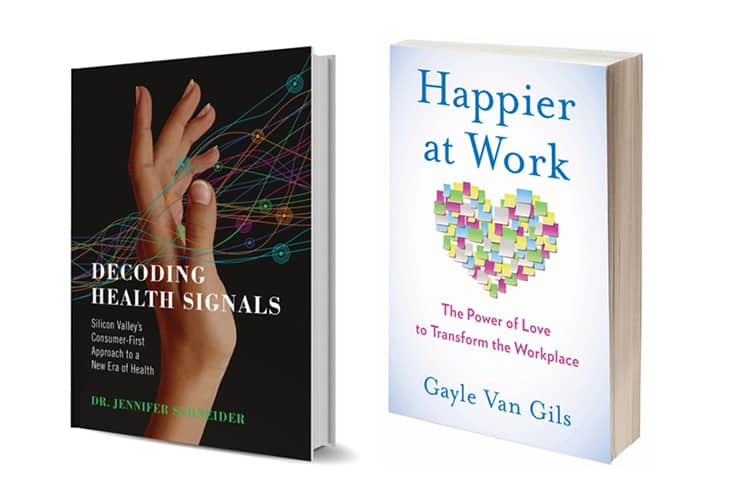
FIND DECODING HEALTH SIGNALS ON AMAZON
READ LIVONGO’S PRESS RELEASE
FIND HAPPIER AT WORK ON AMAZON
And lastly, what is one piece of advice that you would give to our readers?
Healthcare has so many different lenses through which you can view the world that without exposure to the various perspectives, you won’t be able to solve it. We talked about the complexity of healthcare, how challenging it is, and how everybody wants to fix it. We all know we have to. We can’t continue to spend this much money on healthcare. The country will go bankrupt. The patient experience is horrible. All these things that we know are the problems. The solution requires understanding all the perspectives and that everything has to start with the person at the center. To do that, you have to understand where healthcare is coming from, but you almost need to forget everything else about it. You have to be able to put aside what it is today and ask what’s the right experience that we should create? What kind of experience would you want to have yourself? Instead of saying here are all the problems, ask what’s the vision of the future and what would be a great experience? Then you can start to use your different lenses and perspectives on healthcare to understand how to solve the constituent challenges – the payment models, who benefits, and who’s not going to like your innovation. Everyone in healthcare talks about how we all want it to change, except we don’t really want to give up our piece of the pie. That is part of the challenge. How are you going to recreate that piece of the pie? Part of that requires that you put your perspective to the side. One of the most eye-opening elements as I’ve fully stepped into the Livongo mindset is that I thought I knew healthcare really well, but then there’s this whole other world and perspective that I had never considered in the past. Shame on me for not seeing the full spectrum before, but I see it every day now. I don’t know if that’s a pure piece of advice, but I know that we need to at least appreciate everybody’s perspective if we’re going to solve healthcare.
“You have to understand where healthcare is coming from, but you almost need to forget everything else about it. You have to be able to put aside what it is today and ask what’s the right experience that we should create? What kind of experience would you want to have yourself?”